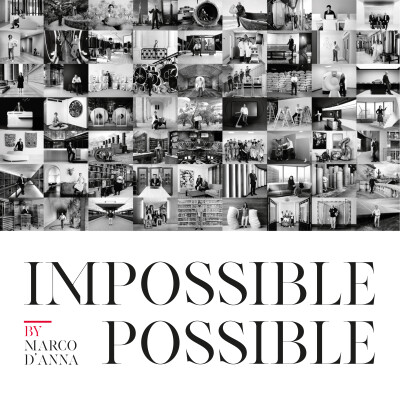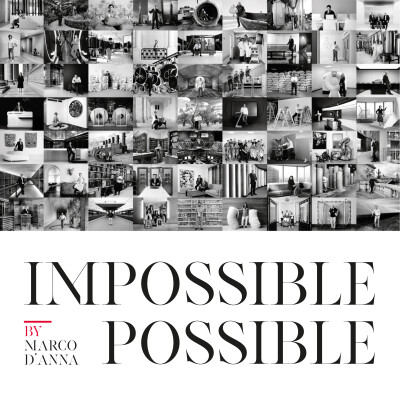Sébastien BazinThe best thing I have done in my life is to go far away. I have four lives. I had a life where I was a financial analyst, a life where I was an investment banker, a life where I was an investor, and a fourth life where I am a general manager of a company. I hope to have a fifth life. It is very amusing to look at this life journey, where I actually started in directness, in finance, in profit, in measuring profit, in financial advice, in investment, then later in management, and now I am increasingly focused on the social side. It is probably a star that guides me. I do not know where I am going, but a path is being drawn in front of me and I know nothing about it. So I do not know where it will take me, but in any case I am moving forward. Was it conceivable that someone coming from the world of investment, private equity, with twenty years' experience in finance and a certain arrogance - when I look at myself in the mirror, I am not always proud - could manage a company in one hundred and twenty countries, three hundred thousand people, when I had never managed more than fifty people in my life? This risk was incredible. And it was not me who took it, but the board members when they appointed me. I thought it was within the realms of possibility. I didn't imagine it would be so hard. So, it took time. The board trusted me. The employees did not at first. Probably because I was young, arrogant and probably did not have the right words or the right attitude. And then I started travelling, meeting people, and I loved it. And then I discovered people who had never seen the light, who had never been given a position, so I took them with me. I made a very difficult decision, and probably the best one, without knowing it. Just three months after my arrival, I spent three months in the forty countries of the Group, because I needed to know the Group from the inside. I had met incredible people: 2500. At breakfast, lunch and dinner, and 25 people there each time. I was all alone and did not want to see the regional executives. And I forbade the people to leave the room without talking to me. And I was telling them: 'Talk to me about sex, religion, finances, your family, everything.' And when I came back, I was amazed because all these people were telling me: 'This group has no direction. We do not know where we are going. This is all very French. There are only French expatriates. You don't know who we are.' Fortunately, they loved the brands. That is why they were still there. So when I returned to Paris, I was so upset and angry that I asked 45 of the group's 50 executives to leave within a week. One third probably deserved it for a long time. A third would probably have deserved it within 12 months. And for a third it was completely unfair. But I did not know who the last third were. I had to get all those who were reluctant to my arrival to leave, because otherwise they are called dead weight, knives in the back, and it is too sad, it is bad energy. I replaced those 45 people with 45 people I had met in 90 days, who were great and who were not French. It turned out that this decision, after three months, changed everything in my ability to engage everyone. People realised that this group finally valued differences. It was as simple as that. And I had not read it in a book, because I never read management books. They are not interesting. For years, I had a priority order that was quite surprising: the shareholder came first, because I was judged on risk and performance. Then I probably put governments, stakeholders, partners, and I put employees last. For 11 years now, it has taken me a good year and a half to get there, but for sure, for 8 years and a half at least, I have put employees well ahead of shareholders. Besides, I get blamed for it. Because, if we do not engage our people, we will never have returns for our shareholders. I love my job today because I engage people, because we have the capacity to hire more than one hundred thousand people per year, two-thirds of whom have never been to university, have never attended prestigious schools, two-thirds of whom have never had a job before. We hire them in Nigeria, Sri Lanka, Chile. And it is extraordinary, this ability to give someone a chance. That is why I love my job. I have learnt the meaning of generosity, respect, difference, and acceptance of time. Someone told me something interesting, his name is Joël de Rosnay. Joël de Rosnay is a physicist, vice-president of the Academy of Sciences. And one day I asked him: 'Joël, please explain to me the difference between long term and short term.' He said to me: 'But Sébastien, that's not the right question. You know very well the difference between long term and short term. What you need to learn is wide term. Wide term is your library. It is when you finally take two hours to visit a museum when you are in Tokyo. It is when you meet someone you did not expect to meet. You understand that this person is a philosopher. The more you give time to wide term, the better you will master short term and long term.' I have never forgotten that. So do I really practice it? It’s complicated. Do I want to practice wide term? Oh yes! My life is made up of encounters and discoveries. That's why I always want to keep going. Well, now I have been married to the same woman for thirty-nine years and I am delighted. So it's a sweet mixture. I have a kind of family serenity. I love my grandchildren, there are only five of them; if they could be twelve I would love that, but maybe that will come. I need that foundation, it is very important to me. After that, I need the unexpected, I need risk, I need audacity, I need transformation. In fact, I need movement. If there is no movement, I get bored. But I have no Grail, I have no desire for power, nor for a social summit, nor for recognition. In fact, I do not like people who live under the gaze of others. So I never read what people say about me, I never watch the videos I make, I am not on any social media, zero, I am not on LinkedIn. So I save at least three hours of time every day by not running around to see what other people are doing. So I am very disconnected from this media world twenty-four hours a day because I need to get away from it. In fact, I would like to go back a bit. I would like us to spend more time in reflection than in the immediate. I run twice a week. And while I run, never with music, never with anything in my ears, because I am thinking. That is when I make the right decisions. So afterwards I have to remember what I was thinking about while I was running, but it is a very important moment of disconnection. And it’s the same on airplanes, when the plane door closes. I have been lying to everyone for ten years by saying that wifi does not work on airplanes. Because I do not want anyone to enter my life on a plane. It is my moment when I can let my mind wander in all directions, my brain thinks of many completely different things. It is the moment when I escape. And I have to escape before I come back to real time. So I really enjoy those moments; they are part of my inner balance. I am rarely mistaken; I have a very good reading of people. In fact, I have an order that has been very clear in my mind for a long time and that saves me. And then I hope that this order will work for the most. It's that every time I make a decision, I always start with my guts. What does my instinct, my belly tell me? That is what we call gut feeling. Once my stomach tells me something, it quickly goes to my heart. And the heart tells me how this decision will affect others. How generous it is, how impactful it is. And once I have gone from the stomach to the heart, I go to the brain. And the brain just gives me the timing, when to make this decision. Those who start with the brain are often mistaken. I have something that annoys a lot of people around me, especially those who love me and live with me. I understand that it can be very irritating. You can't imagine how much confidence I have in myself. So I get up every morning, I don't tell myself every morning that I'm handsome, that I'm tall, that I'm smart. Well, we are not too far away from that anyway. So there is an extremely narcissistic and somewhat egocentric side. Without, I hope, causing too much harm. But I never stress about things I cannot control. I am never afraid. I want to move, I want to take someone along, I want to dive in, I want to transform, I want to do different things. My parents gave me confidence in myself. My grandmother always told me that when you walk down the street, look at the first floor, never look at your feet. That is what I try to give to my children: to believe in themselves. And when it doesn't work, you tell them it's OK and we'll keep going. So that self-confidence, not everyone has it and I understand that very well. That's why I say it can be annoying. But my God, it has never left me. I want to help, I spend a lot of time on childhood at the moment. There are too many unhappy people on earth, there are too many people who have not been lucky, there are too many people who have not had access to privilege. So I want to spend time with those who need me and need time. If you have not met her yet, you should meet a woman called Céline Gréco, a professor of medicine at Necker. She comes from the social services for children and she was beaten in her childhood. When you meet this woman, you go to war with her. More than 50% of the homeless are children who were mistreated during their adolescence. These people, no one has reached out to them, they have been left on the sidelines. Why shouldn't we take care of them? So there you go, that will be my side as an architect. I may not have built something, but I may have left a footprint.




